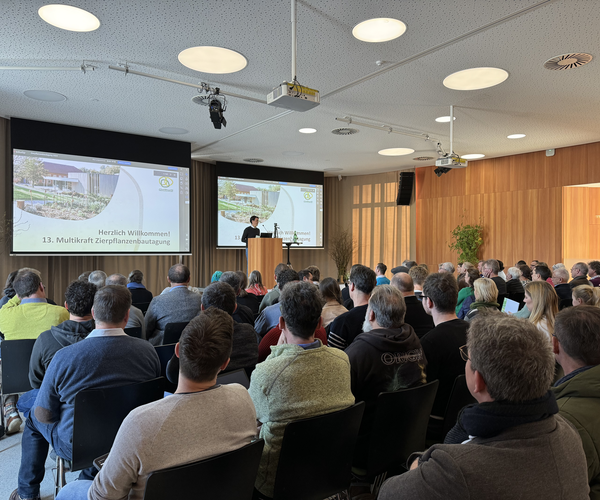
Successful Multikraft Ornamental Plants & Vegetables Conference
Sustainable plant fortification, peat-free substrates, the multi-weed system in viticulture and many other field reports and experiments were presented at the Ornamental Plants & Vegetables Conference 2024. Gardeners shared their practical experience in the use of plant strengtheners, which enable pesticide reduction through regular use. Frank Korting from DLR Rhineland-Palatinate reported on his trial results on the multi-weed system using the cold fog method.

The Ornamental Plant Conference was held for the 13th time, and the Vegetable Growers' Conference also celebrated its 10th anniversary this year. Over two full days, from 10.01.-11.01.2024, everything revolved around working ecologically with biostimulants, residue-free gardening and the reduction of antimicrobial substances and pesticides. The event took place both online and at the company site in Pichl bei Wels and attracted more than 220 participants from Austria and abroad on each of the two seminar days.
"We need to be bold in driving forward change, because carrying on as before is not an option," emphasised Robert Rotter, Scientific Director of Agriculture. He recognises the importance of sustainable solutions in agriculture for the climate. Rotter pointed out that, according to the climate report, 20 out of 35 climate-relevant parameters are considered "new extremes". In addition, agriculture is struggling with a loss of biodiversity, which is particularly problematic as species-rich forests can store twice as much carbon in the soil compared to monocultures. For over 25 years, Multikraft has been researching alternatives to minimise the use of antimicrobial substances and pesticides and to strengthen the circular economy to manage nutrient losses in the soil.
"We need to be bold in driving forward change, because carrying on as before is not an option," emphasised Robert Rotter, Scientific Director of Agriculture. He recognises the importance of sustainable solutions in agriculture for the climate. Rotter pointed out that, according to the climate report, 20 out of 35 climate-relevant parameters are considered "new extremes". In addition, agriculture is struggling with a loss of biodiversity, which is particularly problematic as species-rich forests can store twice as much carbon in the soil compared to monocultures. For over 25 years, Multikraft has been researching alternatives to minimise the use of antimicrobial substances and pesticides and to strengthen the circular economy to manage nutrient losses in the soil.
Experiment on the multi-force system using the cold fog method
Frank Korting from DLR Rhineland-Palatinate presented the results of trials on the cold spray system for potted herbs, bedding plants and balcony plants. The central question was how to ensure a reasonable dosage on the plants without causing too much loss in the room. Different methods were used in direct comparison in several glasshouses - cold fog method, spray treatment, cold fog method with biostimulants and a control group. Frank Korting emphasised the labour-saving nature of the cold fog method and the initial positive effects: treated plants tended to show stronger development, increased root growth, higher fresh weight and earlier flowering.
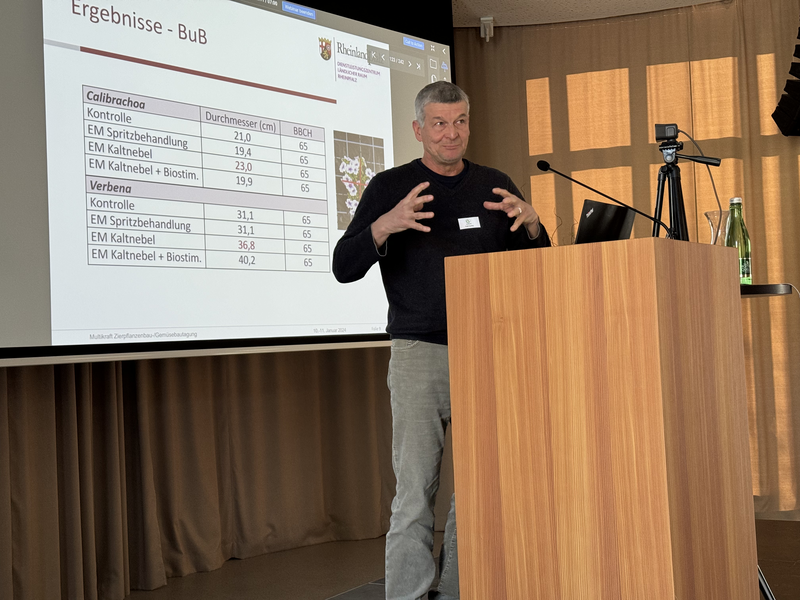
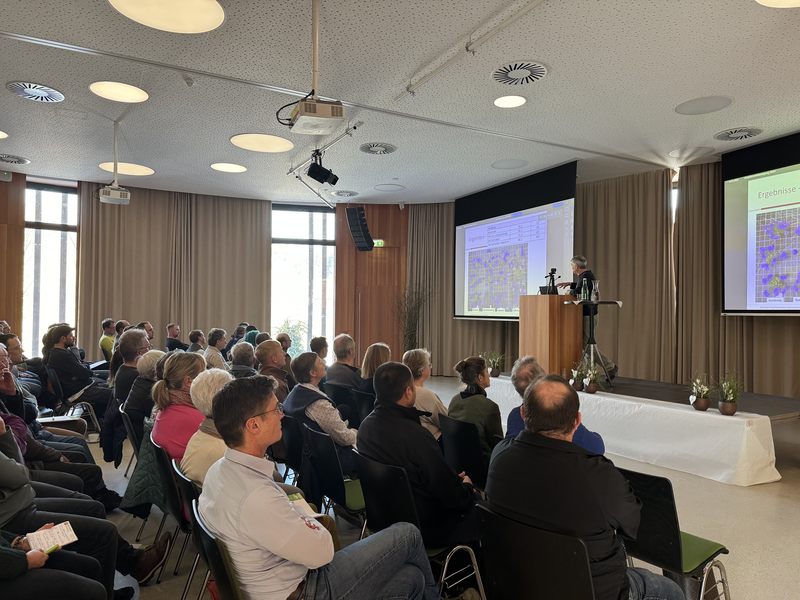
Peat-free working with the multi-gravity system
Siegfried Dumbsky runs Gärtnerei Dumbsky, a retail business specialising in bedding and balcony plants, poinsettias and other ornamental plants. At the ornamental plant conference, he explained why he switched to peat-free substrates: "We want to produce sustainably and feel responsible for our climate and our employees. Since doing without peat, I feel more like a gardener again and am closer to my plants." The substrate used consists of compost, coco pith, bark humus, wood fibre, clay, Multikraft ceramic powder and sheep pellets. The use of MK Blume and horsetail extract from Multikraft means that fungicides are no longer required. Inhibitors can also be avoided, as the plants have more "stress" due to a slower and more even release of nutrients and have to make more of an effort.
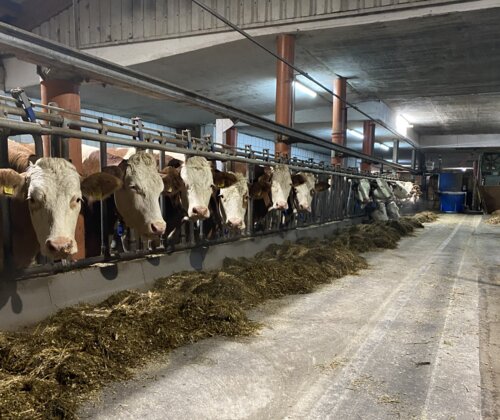
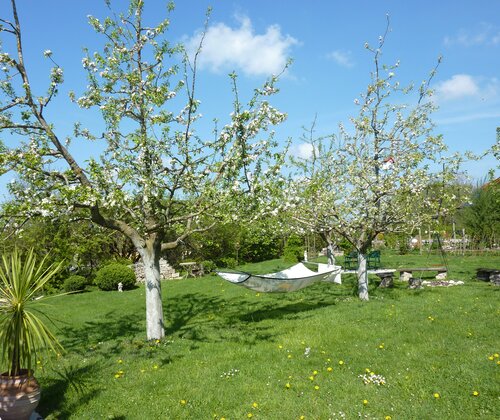
Johannes Lenzenweger lives with his partner in a converted farm on a plot of about 3,700 m² in Straßwalchen in Salzburg. On the wall of the house hang the plaques "Life raft for biodiversity" and one from "Nature in the garden". Both certificates describe well what his garden is all about. The trained fruit tree keeper cares for his fruit trees with love and, for about twenty years, also with Effective Microorganisms.
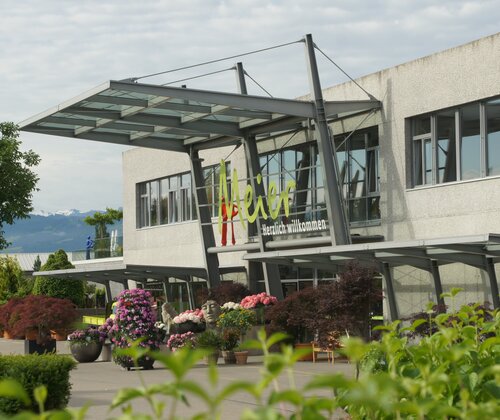
Erwin Meier Senior from Gartencenter Meier in Dürnten, Switzerland, is considered a plant expert. In an interview, he gives insight into the development of the family business and the importance of Effective Microorganisms and a healthy soil.
"With Urban Jungle we have achieved great success in reducing fungus gnats."
